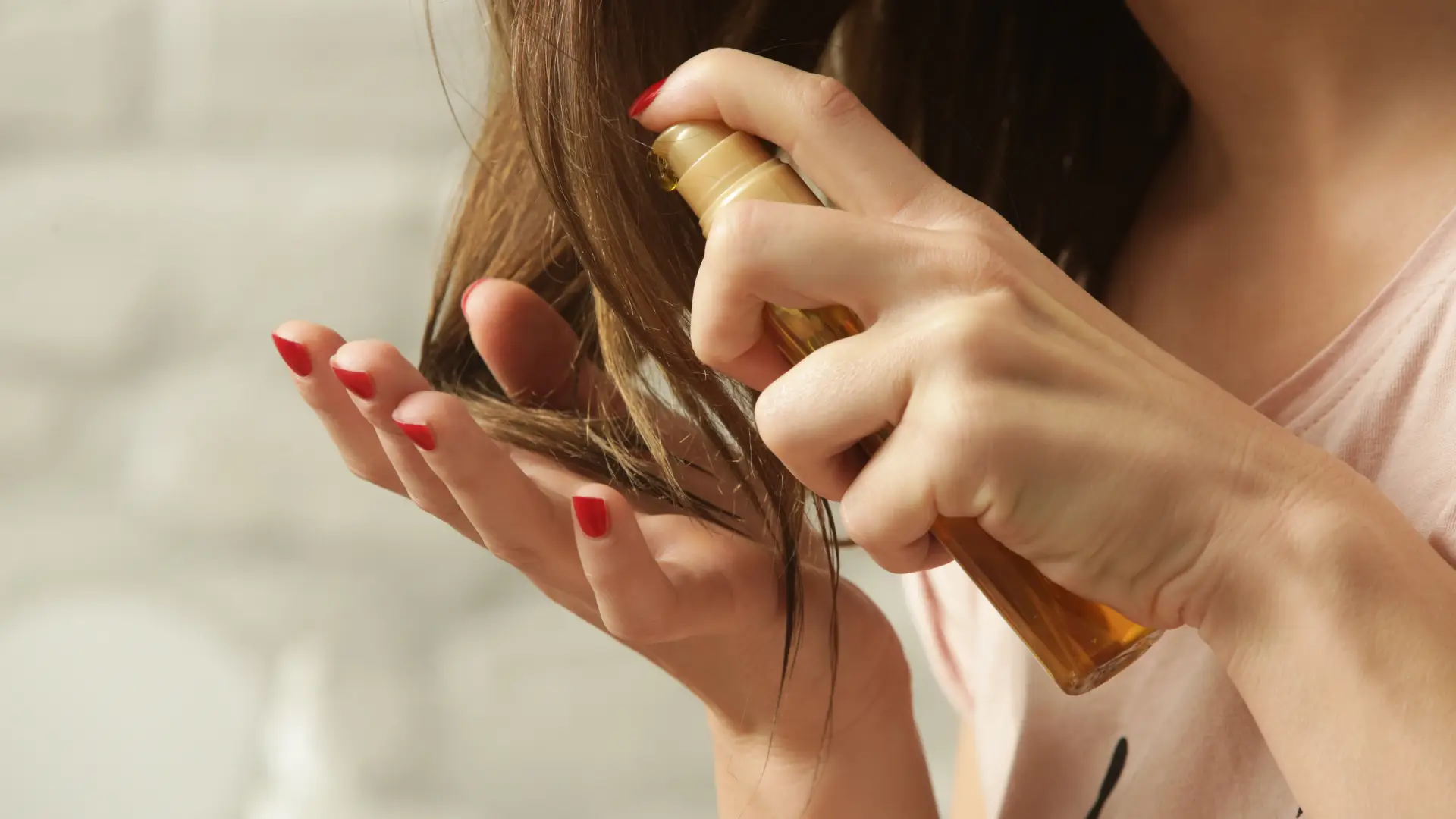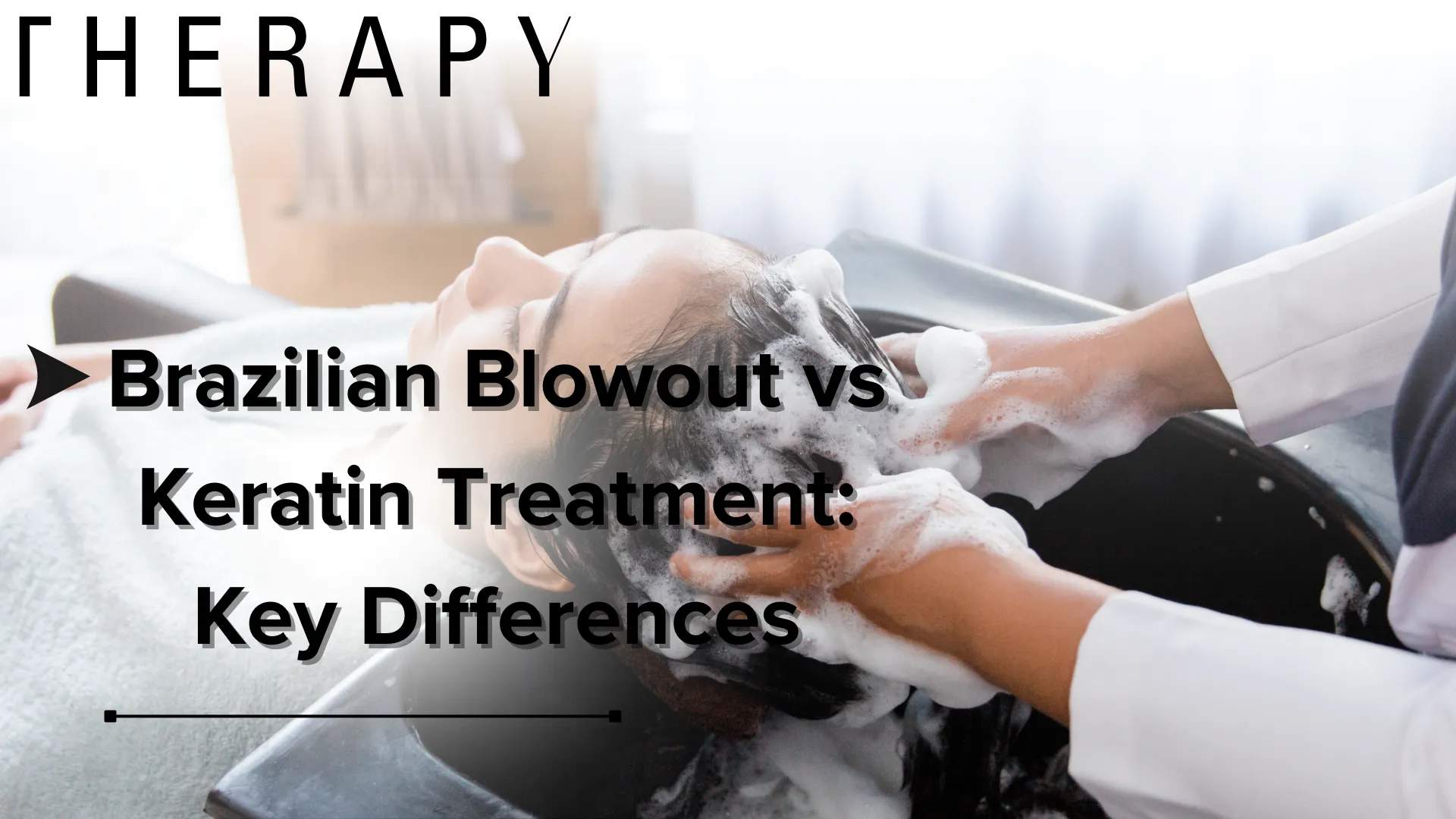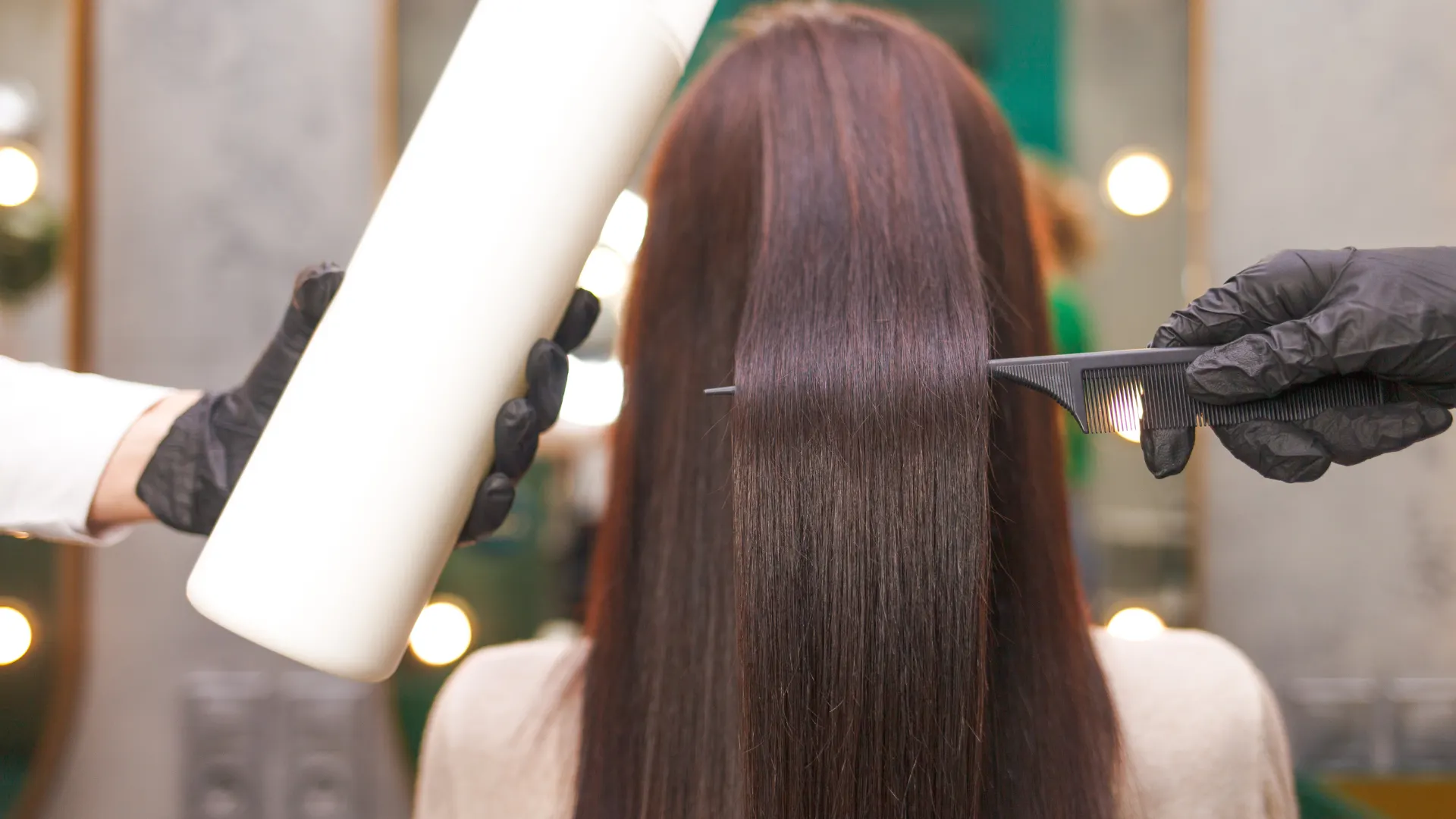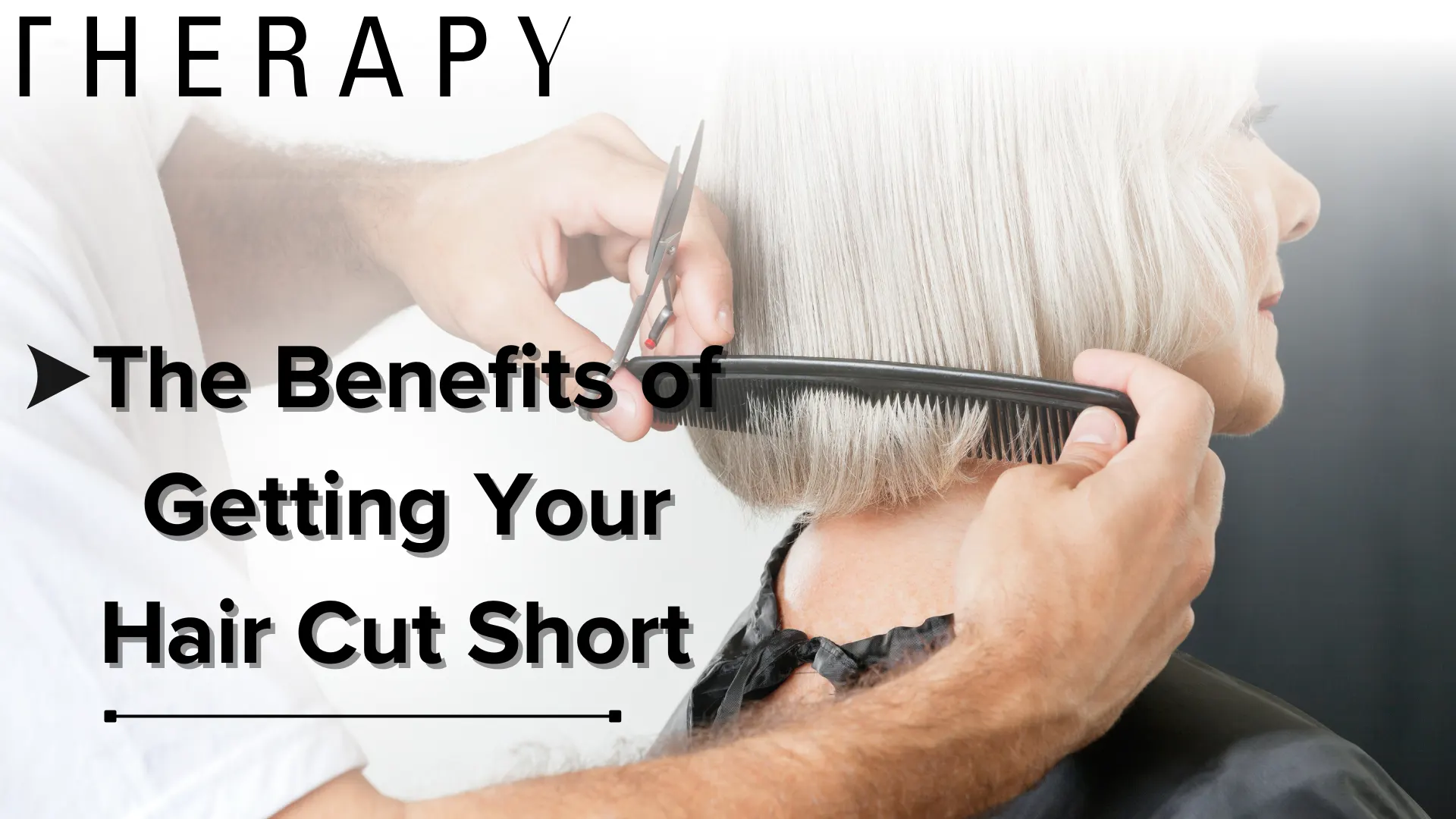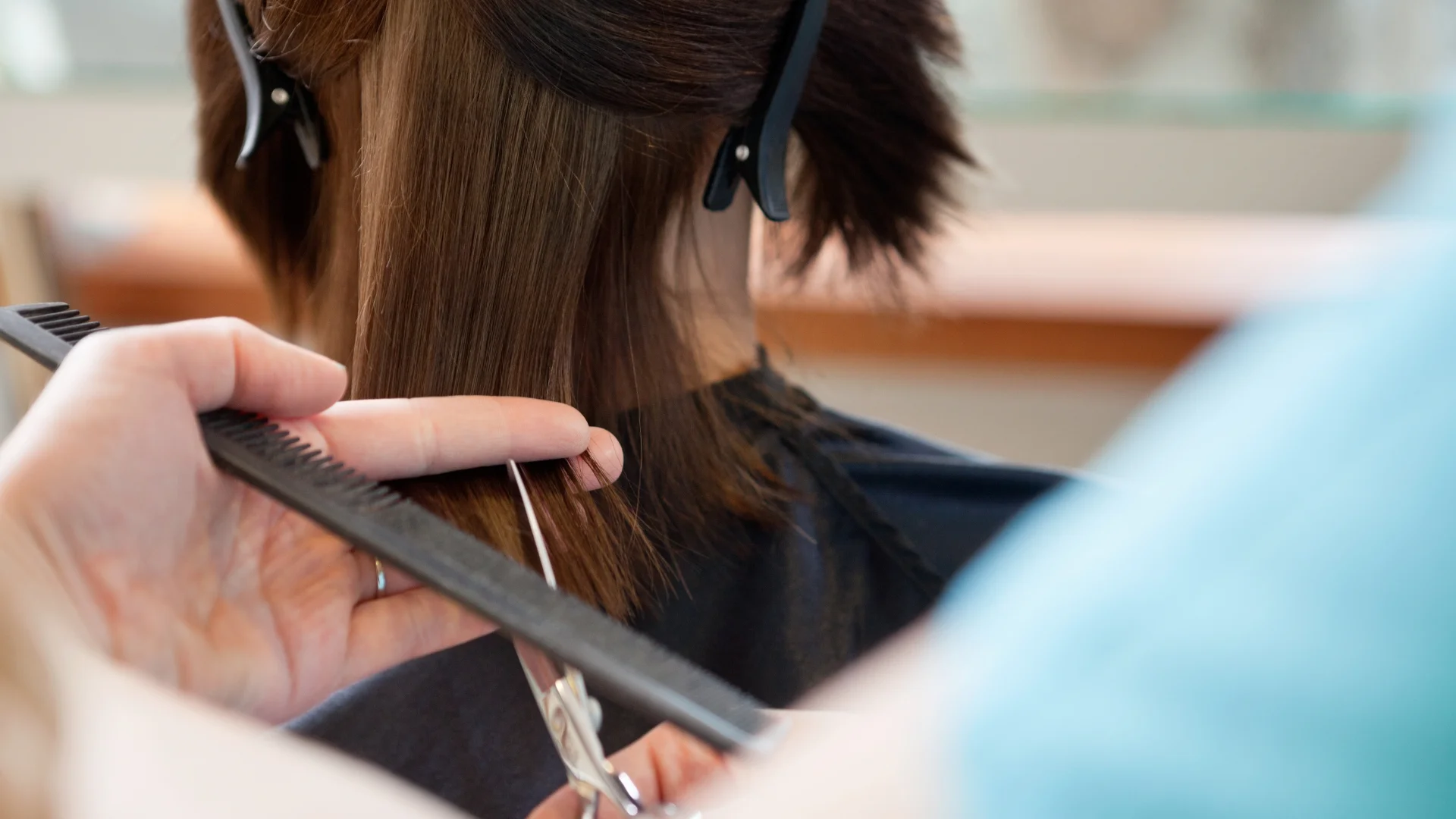As summer beckons us outdoors, we often focus on shielding our skin from harmful UV rays, but our hair deserves equal attention and care. Knowing how to protect your hair from sun damage is essential, as sun exposure can wreak havoc on your locks, causing dryness, brittleness, and color fading. At Therapy Hair Studio, we understand the importance of maintaining healthy, vibrant hair year-round.
Understanding Sun Damage to Hair
UV rays penetrate the hair’s cuticle, breaking down the proteins that give it strength and elasticity. This process leads to weakened strands, split ends, and a dull appearance. The sun’s heat can also strip away natural oils, leaving hair dehydrated and prone to breakage. For those with color-treated hair, sun exposure accelerates fading, diminishing the vibrancy of your carefully chosen hue.
Preventive Measures for Sun Protection
Protective headgear serves as your first line of defense against sun damage. Wide-brimmed hats, scarves, and caps protect your hair and shield your scalp and face from harmful rays. Opt for breathable materials to keep cool while providing maximum coverage.
Limit sun exposure during peak hours, typically between 10 am and 4 pm. If you must venture out, seek shade under trees or umbrellas to minimize your hair’s exposure to intense UV rays.
Apply a leave-in conditioner or serum with UV filters before heading outdoors. These products create a protective barrier, shielding your hair from sun damage while providing extra moisture.
Consider embracing protective hairstyles like braids, buns, or updos when spending extended periods in the sun. These styles minimize exposure and reduce the risk of damage to your hair’s length and ends.
Regular trims help maintain overall hair health. Schedule appointments to remove split ends and damaged portions of your hair. This practice prevents further damage from spreading up the hair shaft.
Nourishing and Repairing Sun-Exposed Hair
Even with preventive measures, some sun exposure remains inevitable. Incorporate these strategies to nourish and repair your hair after sun exposure:
- Treat your hair to weekly deep conditioning masks to replenish lost moisture and restore shine. Look for products rich in natural oils and proteins to strengthen sun-weakened strands.
- After swimming or sweating, rinse your hair with cool water to remove chlorine, salt, or sweat. This practice prevents these substances from drying out your hair further.
- Before bed, apply a leave-in conditioner or hair oil to nourish your hair overnight. This routine helps repair damage and prepares your hair for the next day’s sun exposure.
- Consume foods rich in vitamins A, C, and E and omega-3 fatty acids. These nutrients support hair health from the inside out, promoting strength and shine.
Therapy Hair Studio’s Sun Protection Arsenal
Therapy Hair Studio offers a curated selection of products to protect and nourish your hair from sun damage. Our expert stylists recommend the following:
- Kerastase Bain Après Soleil Shampoo targets sun-exposed hair, providing essential nourishment and protection. Its formula helps remove chlorine, salt, and sand while replenishing moisture. Regular use keeps your hair soft, manageable, and resilient against UV rays.
- Hydrate Me Wash, infused with Kakadu Plum, delivers intense hydration and antioxidant protection. It shields your hair from environmental stressors while leaving it soft and shiny.
- Angel Wash, perfect for stressed or color-treated hair, provides gentle cleansing and nourishment. Its formula helps maintain color vibrancy while protecting against sun-induced fading.
- Plumping Rinse, a hydrating conditioner, strengthens and fortifies your hair, creating an additional barrier against sun damage. It leaves your locks fuller, softer, and more manageable.
Creating a Sun-Safe Hair Care Routine
Incorporate these steps into your daily routine for optimal sun protection:
In the morning, apply a leave-in conditioner with UV filters. If you spend time outdoors, style your hair in a protective updo. Wear a wide-brimmed hat for additional protection.
During midday, reapply leave-in protectant if needed. Seek shade during peak sun hours. Rinse hair with cool water after swimming or excessive sweating.
In the evening, wash your hair with a protective shampoo like Kerastase Bain Après Soleil. Apply a deep conditioning mask once a week. Use a silk pillowcase to reduce friction and maintain moisture overnight.
Remember, consistency remains vital in protecting your hair from sun damage. By incorporating these practices and products into your routine, you’ll maintain healthy, vibrant locks throughout the sun-soaked months.
Embracing Sun-Safe Hair Care
At Therapy Hair Studio, we remain committed to helping you achieve and maintain your hair goals, regardless of season. Our carefully curated product selection and expert advice empower you to protect your locks from the sun’s harmful effects while enhancing their natural beauty.
To learn more about protecting your hair from sun and UV damage or to schedule a consultation with our expert stylists, contact Therapy Hair Studio at (713) 355-HAIR (4247). Your journey to sun-safe, beautiful hair starts here!
Related Posts:
How to Keep Your Salon Hair Color From Fading
Hair Care Basics: How Often You Should Shampoo and Condition Your Hair






